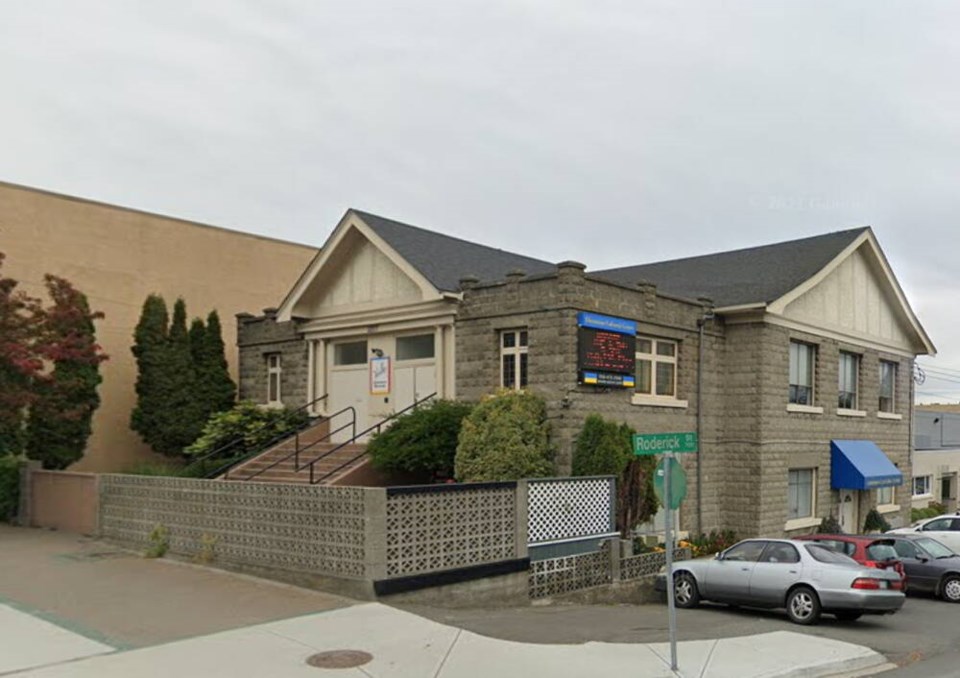The Ukrainian Cultural Centre just learned of an 85-year-old Ukrainian woman who landed in Victoria a month ago with nothing but the clothes on her back.
Not on anyone’s radar screen, the traumatized woman has been living with her 20-year-old granddaughter, who didn’t know where to turn for help.
“We only found out about this the day before yesterday,” the centre’s president, Devon Goldie, said Friday.
“She arrived and no one knew she was here.”
The centre outfitted the woman with new clothes Thursday, and set her up with a counsellor.
Goldie tells this story as an illustration of the gaps in the system, gaps that the cultural centre — which, remember, is a community organization, not a refugee agency — is scrambling to fill.
“The federal government, the support they provide is horrifically inadequate,” she said.
This isn’t the picture that was painted when sa国际传媒 declared it would provide safe haven to Ukrainians fleeing the Russian invasion. The assumption was supports would be in place.
The assumptions were wrong, says Goldie, who is also the president of the Victoria branch of the Ukrainian Canadian Congress.
Better get this fixed before the real influx arrives. She estimates 200 to 300 Ukrainians have arrived on Vancouver Island so far, though it’s hard to nail down firm numbers. The cultural centre has about 120 applications from Ukrainian families looking for hosts here. Maybe 25 have arrived in Victoria through that process to date. That’s in addition to the roughly 100 arrivals who found safe haven with relations.
“There’s not a lot of oversight,” Goldie said. She hears of Ukrainians arriving expecting to meet benefactors they had met online, only to be abandoned. A mother with three kids ended up wandering the streets of Vancouver because the people who had promised to meet them simply didn’t show up.
Ukrainians are arriving under an expedited emergency-travel authorization, not as official refugees. They receive some, but not all, of the supports refugees get. Victoria’s Inter-Cultural Association has federal and provincial funding to provide the Ukrainians its full suite of refugee programs — access to settlement workers, employment services, youth and family services — but that still leaves plenty of other hurdles, including housing, food and child care. There has been a lag between the announcement and the delivery of Ottawa’s promises of six weeks of $500-a-week income supports and of charter flights that would free the Ukrainians of the need to pay for air fare to sa国际传媒.
The province is doing a good job stepping up to fill the gaps, Goldie says, but that still leaves holes to be filled by the cultural centre.
It’s there that good intentions crash into unexpected hurdles. An example: sa国际传媒 requires the newcomers to get a medical exam within 90 days of their arrival. sa国际传媒 is providing them with Medical Services Plan coverage, but MSP doesn’t cover the $400 cost of an exam — even if the arrivals can find a doctor to perform one. “We had people in tears, asking: ‘Will I be deported if I can’t get the test done within 90 days?’ ” Goldie says.
That’s just one scenario, says the cultural centre’s office manager, Victoria Grando. “There are so many underwater rocks that we were not expecting,” she says. “It’s overwhelming.”
This week, the organization hosted a pop-up event at which various agencies — Services sa国际传媒, ICBC, the United Way, Island Health and others — offered advice and aid to newcomers.
Still, there’s so much the Ukrainians need. They arrive shattered by war, their lives turned upside down, their families torn apart. With Ukraine requiring men aged 18 to 60 to stay home to fight, most arrivals are mothers with children, which presents its own challenges. “How do you go to work when you’re a 23-year-old mom with two toddlers?” Goldie asks. And even if you can find a day-care, how do you pay for it?
Same goes for housing. Many of the first arrivals were taken in by relatives who were already in Victoria. Bunking with family in a suddenly overcrowded house isn’t a permanent solution, though, so the newcomers end up competing for accommodation with other arrivals from Ukraine, ones with no connections here, in one of the tightest housing markets in sa国际传媒.
How do you deal with that when even the basics of life — the language, the produce in the grocery store, the self-checkout counters — are foreign?
Faced with all this are the likes of Goldie and Grando, fielding challenges far beyond their job descriptions.
“It’s a community centre,” Grando says. “We’ve never been faced with refugees.”
But if they don’t step in, who will? “It’s so upsetting hearing these terrible stories about people falling between the cracks,” Goldie says.
• To comment on this article, write a letter to the editor: [email protected]



